Meet Stefano Pescarmona: An Agrarian Militant
I was in my early 20s when I first fell in love with the Italian landscape. I’ll never forget looking out the window as the train sped through the countryside from Rome to Perugia and I saw patchwork fields of sunflowers, fields of wheat dotted with red poppies, olive groves and undulating neat rows of vines.
Every now and again I’d catch glimpses of medieval hilltop villages or rows of cypress trees. It was so different from the Australian landscape, so much more intimate, and looked so well cared for.
The picture-postcard images were everywhere. No doubt about it, Italians are brilliant at aesthetics.
So you can imagine my shock when I learnt recently that most Italian farmers don’t know how to farm their land.
It almost broke my heart.
“Ninety-nine per cent don’t know how to work the soil,” says Stefano Pescarmona, an agronomist and teacher of Sustainable Agriculture at UNISG in Pollenzo, Piedmont.
“They don’t know it’s an eco-system made by millions of micro-organisms.
“If you see beauty and prosperity, it’s because we have optimal soil, water, temperature, light and an ancient agrarian culture.
“But we destroy the soil and pollute the water and undermine our natural resources. Things have to change, but it’s difficult to change the mentality of farmers,” he says.
He believes the first step is to explain the importance of soil microbiology to farmers and show them how to improve it.
Pescarmona is no ordinary agronomist. He has his own farm in Emilia Romagna which he works according to biodynamic principles, and he challenges the system.
“I am sure that farming biodynamically works and there is important scientific evidence to prove it ,” he says. “But academic scientists don’t want to recognise those results because from their reductionist point of view they don’t understand the process.”
He points to the DOK (Dynamic Organic Conventional) research project conducted over more than two decades by the FIBL Institute of Research, Switzerland.
“It compared the results of organic and conventional agriculture, but didn’t underline biodynamics. You have to look hard for those! They show that organic farming doesn’t conserve the quantity of organic matter in the soil as does biodynamic farming. But this is something science doesn’t understand.”
I like to think of Pescarmona as an “agrarian militant”, a concept I borrowed from Eric Holt-Gimenez, executive director of Food First and author of Food Rebellions! Crisis and the Hunger for Justice.
“UNISG is a private University,” he says. “Italian State Universities won’t have me because I undermine the lack of knowledge about ecology in the academic sciences. Universities only explain the chemical composition of the soil and tell only part of the story.”
He told me he felt alone in his profession, especially in discussions about sustainability.
“Only a few people know what it is, and that includes agronomists. Sure, farmers know if their soil is too heavy to work (clay) but soil is not just mineral components, it’s also organic.”
He points out that at Universities around the world, agronomists support conventional agriculture and GMOs (genetically modified organisms) and claim it’s the only way to feed increasing billions of people.
“We also need to look at the type of diet. To produce meat, ten times the amount of energy and soil surface is required. As industrial countries, we should eat much less meat.
“And the production of food is completely related to petrol — fertilisers and methane are all made from petrol which will run out.
“The abuse of these chemical inputs is having a dramatic effect on biodiversity and soil fertility and farmers have forgotten how to produce food without these inputs.”
He says we need to know that soil fertility is the capacity of soil to produce food without external inputs.
“We need to work on closed loop farm organisms. For example, farmers could exchange their hay for animal manure from a neighbouring farmer and keep the inputs local.”
According to Pescarmona, loss of soil fertility started in the 1950s with the Green Revolution, at a time when there were just 2.5 billion people in the world.”
Over the past 50 or so years we’ve lost fertility because we introduced artificial fertilisers which has led to poor quality of micro-organisms in the soil.
“It is these micro-organisms which transform the soil into humus. Do you know that one teaspoon of soil equals one billion micro-organisms?”
He believes farmers will change if given subsidies and tools and information about agro-ecology to improve their sustainability. For example there is a much higher proportion of farmland dedicated to organics in Sicily, Calabria and Puglia because their regional governments subsidise organic farmers.
“The future for me should be a compromise between the two ways to farm — that some chemicals can be used in some regions, for example using the method of sod seeding with cereal which is more sustainable because it avoids ploughing.”
At UNISG, Pescarmona is in charge of a number of ecological gardens where students are encouraged to learn about growing a variety of fruits, vegetables and herbs.
The idea is to “learn by doing”. For example at the Gastronomic Garden, up the hill from UNISG in Bra, the garden is currently being converted from conventional to organic by a number of students, with help from Nino, a local gardener.
Many of the students who attend the University have never done any gardening, let alone farming, and this is a good introduction for them about the principles of ecology.
“Ecology is a science and is the base of organic farming,” he says. “It’s the study of the biosphere and of the interaction between living and non-living organisms.
“Now at Expo in Milan, everyone is talking about sustainability, but is there anyone there who understands ecology?
“If we don’t know how nature works, how can we talk about sustainability?”
Note: for more about biodynamic farming, take a look at this interview with biodynamic pioneer Alex Podolinskly here.

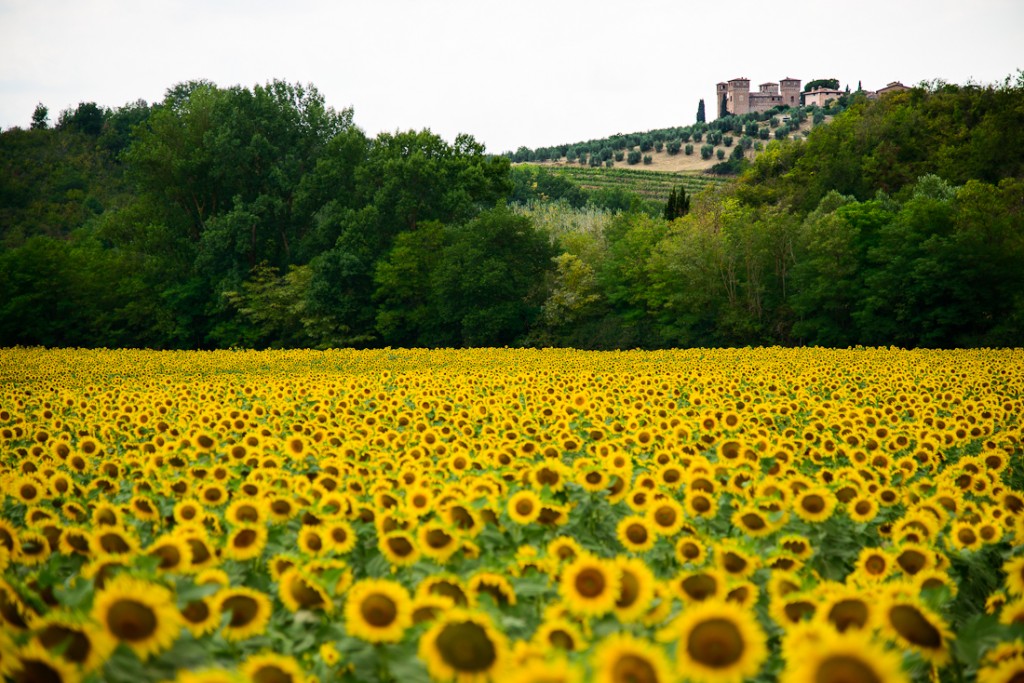

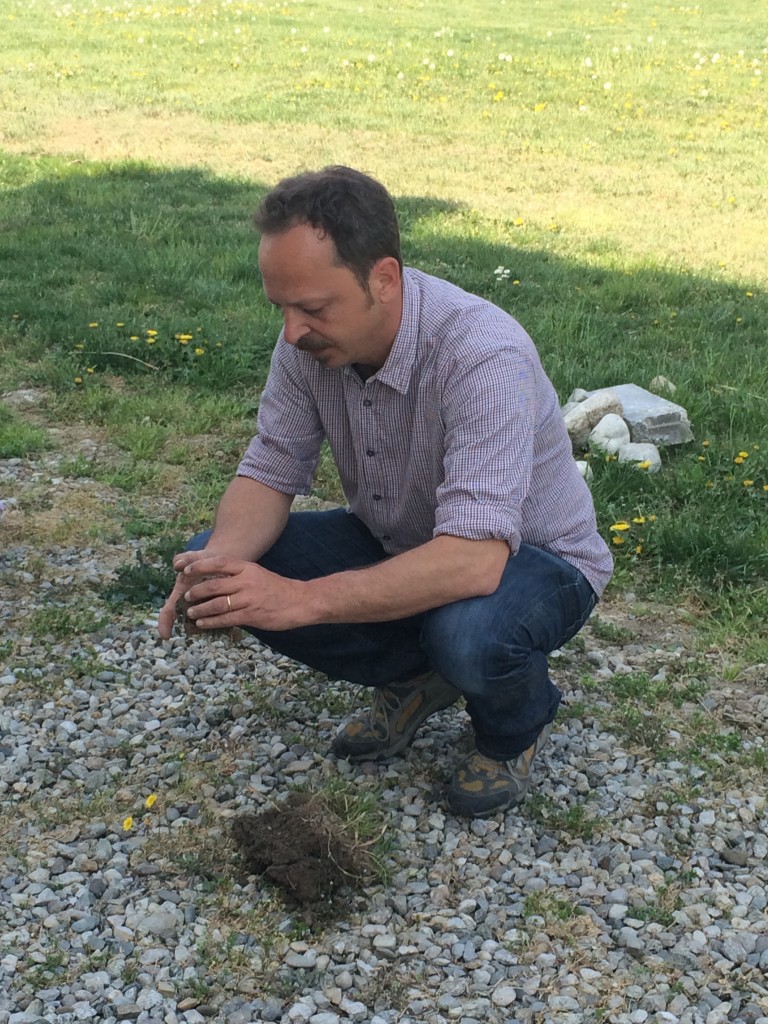

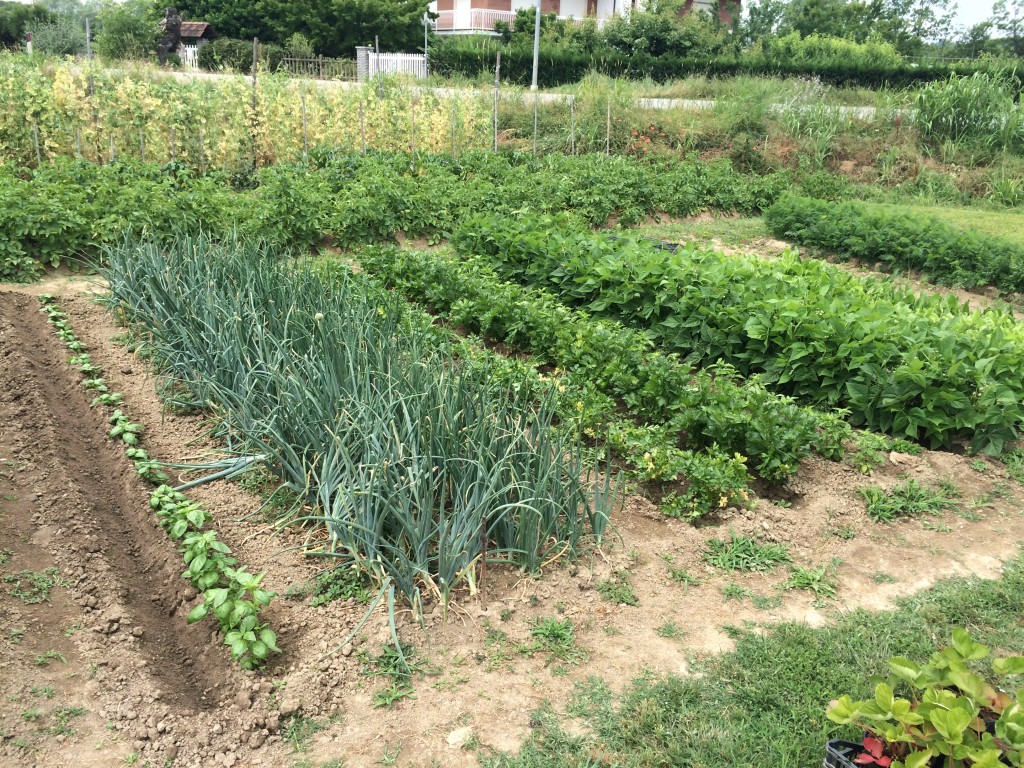
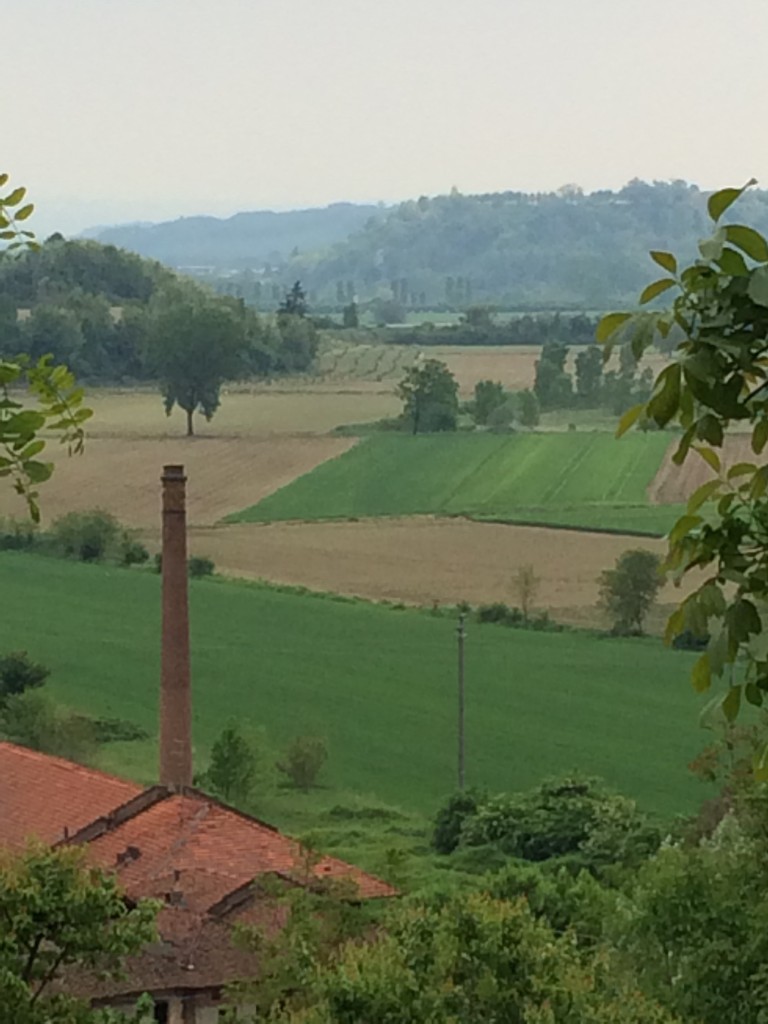
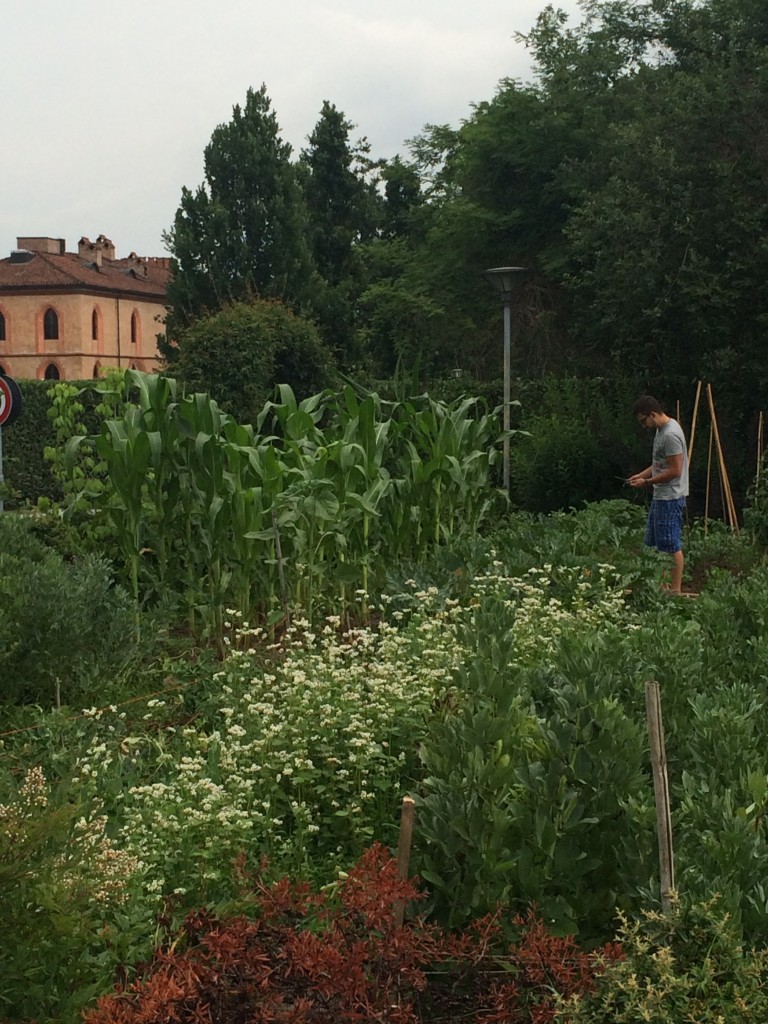
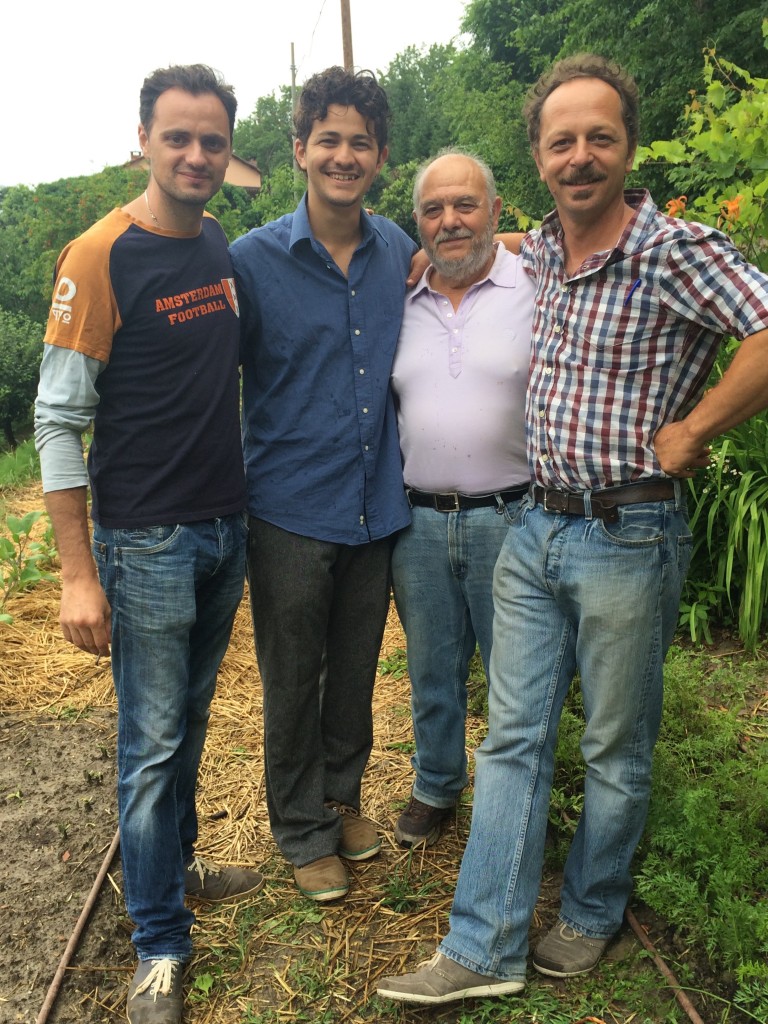
Sheridan – reading this made me think of the gut– & how we are ruining the flora of our alimentary system with the food we all[mostly] consume–leaving aside the Amount we eat
Basically, we should be in balance with nature- on the farm & in the body
Hi Sheridan. I went to a free soil ecology workshop here run through TROPPO the tweed organic farmers group. It was fabulous and has 2 soil scientists talk and then a field trip in the afternoon to check out soil types. A lot of good stuff like that going on up here on the Gold Coast
Well said, Jan!
That’s really good to hear, Justy – maybe you can become the “agrarian militant” of south-east Queensland?!
Hi Sheridan: this is a wonderful article which I’ve finally found a window to read slowly! Thank you for taking time to tease out where Stefano is coming from, his philosophy and dedication to biodynamics, a method which is quite bewildering to many. Also for showing his important influence on many young people at his Uni.
Thanks Helen. I found Stefano’s approach to biodynamic farming really inspiring.